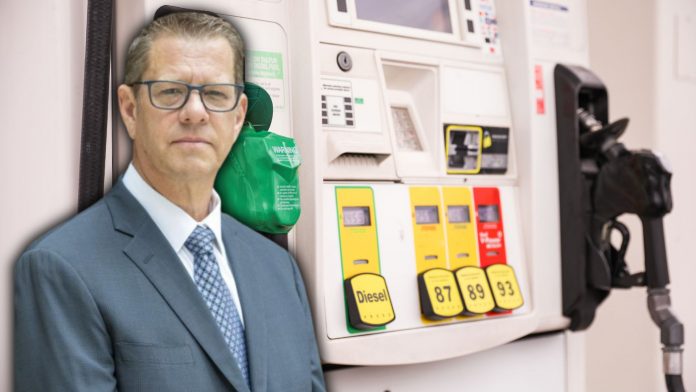On November 8, the California Air Resources Board (CARB) is poised to vote on a significant proposal to tighten carbon intensity targets for transportation fuels, including gasoline and diesel. If approved, the new regulations could potentially increase fuel prices at the pump, with estimates suggesting rises of 47 to 65 cents per gallon by 2025. This anticipated price hike comes at a time when many Californians are already grappling with the rising cost of living, making the discussion around this proposal particularly contentious.
CARB’s proposal seeks to amend the Low Carbon Fuel Standard (LCFS), a program established in 2011 that requires transportation fuels in California to gradually become less polluting. The board is considering raising the carbon-intensity reduction target from 20% to 30% by 2030 and 90% by 2045. This ambitious plan aims to help California meet its clean energy goals, but it has drawn criticism regarding its potential financial impact on consumers.
While CARB officials emphasize their commitment to balancing affordability with public health and environmental concerns, critics argue that the process leading to the vote has lacked transparency. Many motorists feel that the board is out of touch with the financial realities faced by California residents. During a recent briefing, Steven Cliff, CARB’s executive officer, reassured stakeholders, stating, “Affordability is a guiding consideration in all our rulemakings. We strive to balance affordability with other considerations, such as protecting public health and meeting legislative mandates.”
Moreover, the discussion surrounding the proposed changes has intensified as the vote approaches, particularly in light of conflicting projections about the potential impact on fuel prices. A 175-page impact assessment released by CARB staff in September projected potential increases in gas prices of up to 47 cents per gallon in 2025. However, Cliff clarified that these figures were not definitive predictions but rather illustrative of the complexities involved in pricing gasoline. Experts like Danny Cullenward highlight this uncertainty, suggesting that market conditions could cause LCFS credit prices to have varying impacts on prices.
Following the general election, the timing of the vote has prompted criticism that it may shield policymakers from political backlash. While some lawmakers express concerns about rising gas prices, others believe stricter standards are essential for environmental progress. Critics of CARB’s approach argue that focusing on biofuels, rather than electric alternatives, may hinder efforts to decarbonize the transportation sector. In light of these debates, CARB has faced calls for a delay in the vote to better assess how these amendments might affect low-income and disadvantaged populations. Nevertheless, Cliff stated that postponing the vote would require starting a new regulatory process, which could take two years.
As California navigates the intersection of environmental policy and consumer affordability, the upcoming CARB meeting will be pivotal in shaping the state’s approach to transportation fuels and carbon emissions.



